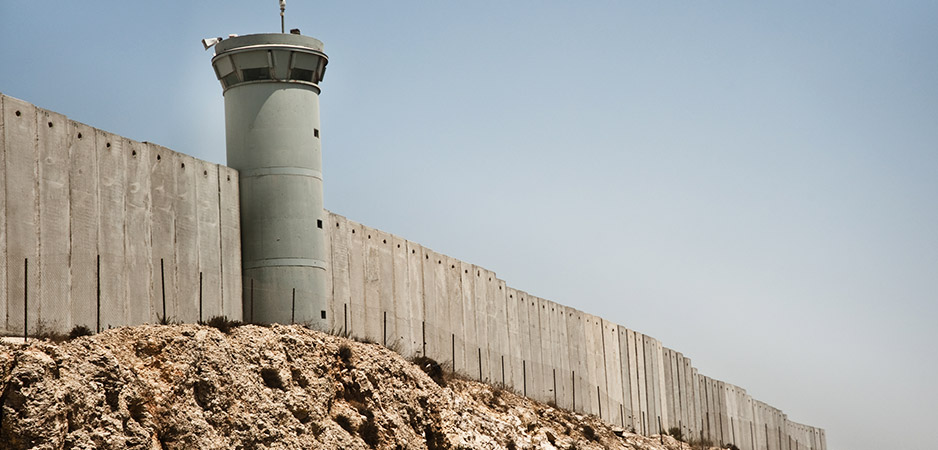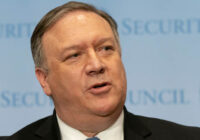The rapidly-evolving geopolitical equation in the Middle East just got another layer of complexity added to it. Earlier this month, Fatou Bensouda, the chief prosecutor of the International Criminal Court (ICC), announced the launch of an investigation into alleged war crimes committed in the Occupied Palestinian Territories since 2014. The prosecutor’s decision, important no less from an international accountability perspective, may end up putting the ICC in the crosshairs of regional politics.
The ICC, which tries individuals rather than countries, is the world’s first-ever permanent court with jurisdiction over war crimes, crimes against humanity, genocide and the crime of aggression. The court’s decision has come in the wake of important developments in the Middle East. These include the US potentially rejoining the Iran nuclear deal; the much-vaunted Abraham Accords signed by Israel, the United Arab Emirates and Bahrain in 2020; the Saudi-led war in Yemen that continues with no end in sight; and Iran’s engagement in proxy warfare in the region. The ICC’s intervention in the Israeli-Palestinian conflict — one of the most complex international disputes — has added a new ingredient to an already simmering stew.
Palestine and Israel: A Bloody Saga
During its early years, the ICC — created through the Rome Statute in 1998 — largely focused on atrocity crimes in Africa. The court was criticized for what was perceived as a bias toward that continent. Recently, the ICC has greenlighted investigations into alleged war crimes in Afghanistan, Myanmar and Bangladesh.
But with no military force to enforce its decisions, the ICC has, over the years, meandered through terrain beset with political uncertainty. It has faced off against belligerent administrations and received relentless pushback from world leaders caught in the crosshairs of its legal processes. With 123 countries accepting jurisdiction to date, but with major powers like the US, Russia and China not a party to the Rome Statute of the ICC, the court has been called out as lacking wider international legitimacy.
Yet, the ICC is trying to fix a broken international criminal justice system, albeit in a manner that does not necessarily bode well for its own future. With pronouncements such as the one in respect of the situation in Palestine, the ICC could end up stirring a hornet’s nest or, at best, catapult some fleeting global attention to the neglected Palestinian crisis.
The US Response
The Biden administration’s response to the ICC investigation came as a surprise to internationalists, who were hoping for some pivoting of the rules-based international order vociferously eroded by the US under former President Donald Trump. These hopes were dashed when US Secretary of State Antony Blinken unequivocally opposed the ICC’s decision to investigate the Palestinian situation. He based the US decision on two overarching principles: First, Israel is a non-party to the ICC and second, Palestine (which has accepted the ICC’s jurisdiction) is not a sovereign state and is therefore “not qualified to obtain membership as a state.”
This line of reasoning is deeply problematic. It strikes at the very heart of the ICC’s jurisdiction, which extends to the territory and nationals of state parties to the court. By virtue of Palestine accepting the ICC’s jurisdiction in 2015, all alleged crimes committed in the Palestinian Territories by the Israel Defense Forces and Hamas — the militant Islamist group that rules the Gaza Strip — theoretically fall within the ICC’s jurisdiction. Bringing Israel within its jurisdiction was the main reason behind the Palestinian Authority’s decision to make Palestine a state party to the ICC.
Secretary Blinken’s statement calls the decision to investigate Israel unfair. It also confirms the US commitment to stand for Israel’s security. This is a veiled warning to the ICC that it will not get far with its inquiry. After all, an ICC investigation will require Israel’s cooperation and US neutrality. With Israeli Prime Minister Benjamin Netanyahu outrageously calling the ICC move “pure anti-Semitism,” the fate of the investigation has been effectively sealed before it even started.
International Criminal Justice
In other words, the ICC inquiry — notwithstanding all the braggadocio of international accountability — will be undermined by the deep-rooted security embrace between the US and Israel. The ICC prosecutor said the investigation in the Occupied Palestinian Territories will be conducted “independently, impartially and objectively, without fear or favor.” Yet, by wantonly brandishing the ICC as a political instrument — something that it is not — the US and Israel will surely launch an all-out effort to delegitimize the international criminal justice enterprise.
Blinken also warned that unilateral judicial actions by the ICC can “exacerbate tensions and undercut efforts to advance a negotiated two-state solution.” The portrayal of the ICC as an impediment to a two-state solution for the Israeli-Palestinian conflict should be a gnawing concern for the international community.
Will Israel now weaponize the ICC investigation to deny Palestinian statehood while claiming that the court is impeding efforts toward that end? With the edifice of international justice having been eviscerated by the Trump administration, coupled with the US and Israel now renewing their vow against the ICC, the future of criminal justice in the Occupied Palestinian Territories appears bleak. The slowly churning wheel of international criminal justice, manifested by the ICC, just got another spoke thrown in it that may well end up permanently jamming it.
The views expressed in this article are the author’s own and do not necessarily reflect Fair Observer’s editorial policy.
Support Fair Observer
We rely on your support for our independence, diversity and quality.
For more than 10 years, Fair Observer has been free, fair and independent. No billionaire owns us, no advertisers control us. We are a reader-supported nonprofit. Unlike many other publications, we keep our content free for readers regardless of where they live or whether they can afford to pay. We have no paywalls and no ads.
In the post-truth era of fake news, echo chambers and filter bubbles, we publish a plurality of perspectives from around the world. Anyone can publish with us, but everyone goes through a rigorous editorial process. So, you get fact-checked, well-reasoned content instead of noise.
We publish 2,500+ voices from 90+ countries. We also conduct education and training programs
on subjects ranging from digital media and journalism to writing and critical thinking. This
doesn’t come cheap. Servers, editors, trainers and web developers cost
money.
Please consider supporting us on a regular basis as a recurring donor or a
sustaining member.
Will you support FO’s journalism?
We rely on your support for our independence, diversity and quality.






